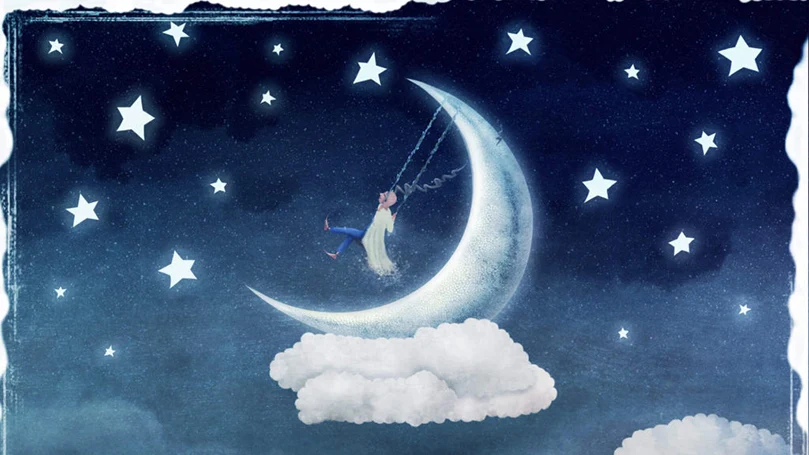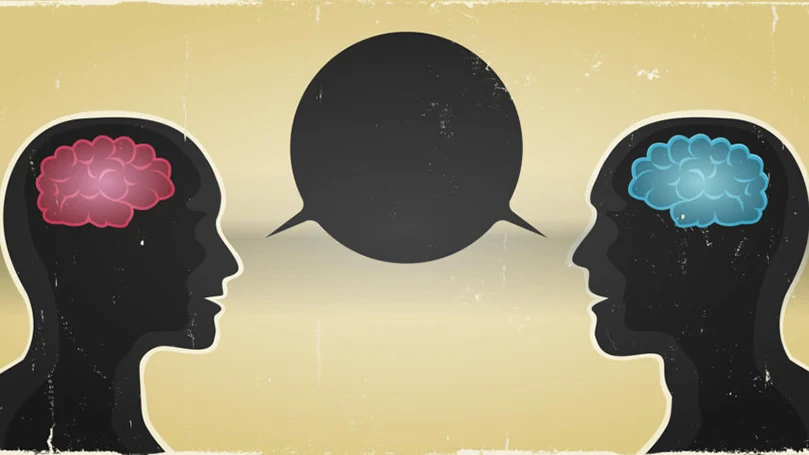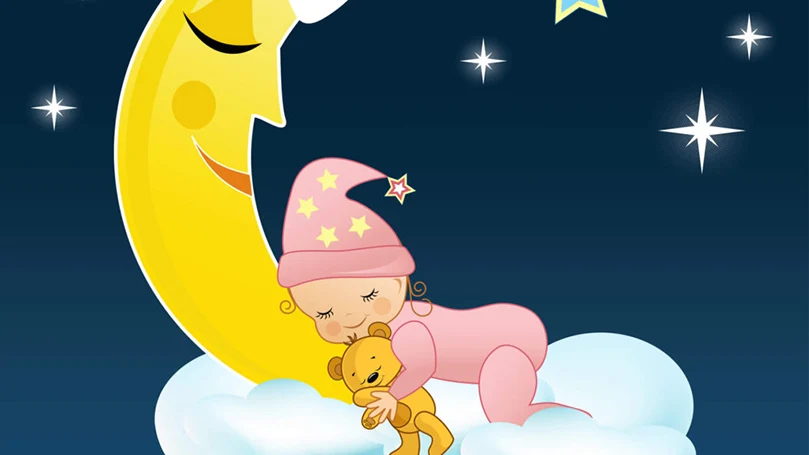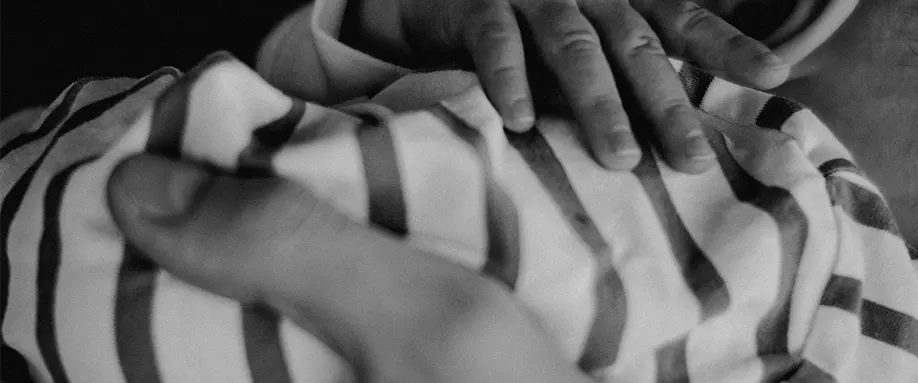
The study of sound and words
Many linguistic studies have shown that sounds of words are not accidental. People have some, let’s say, prejudices about the meaning of certain words of the language they don’t understand, based merely on the way the words sound. A number of linguistic experiments have shown this to be true.
So, what does this fact has to do with the way babies perceive music, songs and bedtime lullabies? Babies don’t yet understand language properly, they maybe memorize a few words that they often hear, but they can’t use the language the way that adults do. But they still do react “correctly” to certain words and expressions. How is that possible?
First of all, babies hearing develops very fast. They can even hear in the womb. First sounds that they can perceive are low-pitched sounds, and later they develop the ability to perceive high-pitched sounds. So, babies can hear quite well long before their sight develops properly. Now, we need to understand how do infants react to sounds and how do they memorize them?
Kiki & Bouba
Let’s get back to those linguistic experiments we mentioned earlier. There is a famous linguistic experiment featuring the “bouba-kiki effect”. In this experiment, researchers said to subjects to answer the following question: One animal is small, one is large, one is called Bouba, other is called Kiki. Which is which?
Of course, participants would answer that a large animal is Bouba and a small one is Kiki. You probably thought that too? There are many similar linguistic experiments that were recently conducted. Another famous one was when subject is asked: Is a man called Ip a fat or a slim man? People would always say that they see him as tall and slim, even though they couldn’t explain why. Some subjects were the native speakers of languages that are not written in an alphabet, so the effect of visual association between the letter “I” and slim build couldn’t be taken into consideration. Do you also imagine someone called Ip a tall person?
Sounds & meaning
There is also one interesting phenomenon in the relation to sound and meaning of the words. Have you ever noticed how do the sounds of words like cracker, sparkle, spice, mellow, frisky, bomb, womb, rumble, chip, lean, hollow really correspond to the meanings of these words? When you say “cracker” or “frizzy” or “hollow” you immediately get an image in your head that perfectly goes along with the meanings of these words.
Many linguists have studied this similarity between the sound and meaning. The main conclusion is, this phenomenon exists in all the languages and is perceived by people of all ages, cultures or educational backgrounds. Now, when it comes to the question why this exists, well, there are a lot of different theories.

Can you feel the sound?
Some common idea is that people “feel” the sounds before they understand them. So, we can conclude that babies rely mostly on this feeling because they lack the knowledge about the language. But what about music?
Psychologists found out that babies and young children enjoy the songs in C and G keys. So, your baby might just like “Let it be” from Beatles or “Every breath you take” from The Police as bedtime lullabies. Also, babies prefer repetitive, simple rhythms, harmony over chaos. So, don’t play Igor Stravinsky to your baby just yet, they might not appreciate it as much as you do. Also, leave experimental jazz for alone time.
What do children like hearing?
But why do babies prefer some sounds over others? To answer this, let’s talk about the only audio experience that they have before they come to this world. In the womb, babies hear the heartbeat and the deep sounds that resemble the sensation of being submerged in water. On top of that, fluid transfers sound a lot faster than air, so they are getting used to their mother’s voice even before they were born. That is pretty much everything that they hear. Psychologist thinks that this a reason why babies can feel calm and sleepy when they are exposed to monotone sounds of motors, machines or household appliances. That’s why the white noise machines can be really helpful when you want to calm your baby down and put the baby to sleep. Babies can fall asleep when they are travelling in the car too, because the vibrations of the motor actually soothe them.
So, in music or bedtime lullabies, babies enjoy simple, slow beats that can resemble a human heartbeat. Something like muffled slow drums can be appropriate for this age (like the sound of drums from slow medieval songs.) Also, they like wind instruments and various percussions.

What do the best lullabies have?
Since we walked through some intro about how babies perceive sounds, let’s see what good bedtime lullabies should have.
- Calm and slow atmosphere – Babies enjoy simple and slow bedtime lullabies that don’t have a lot going on. A simple melody should do the trick.
- Female voice or soothing voice – Babies enjoy their mothers voice the most. After that, gentle female voices are next on the list. Woman’s voice gives a sense of security to a baby. The same happens with faces. Babies prefer female faces as they develop their sight.
- Repetitiveness – Small babies appreciate repetition! They want their bedtime lullabies to be simple and just to go around in a circle. This has to do with their ability to learn and memorize things. As humans of all ages, babies too enjoy learning. But they learn with the most ease if the content is repetitive.
- Deep sounds – Babies don’t enjoy sharp and high-pitched sounds a lot. They like smooth sounds that won’t stimulate them in a wrong way or even startle them. Some slow and deep drums, bass, gentle flute, oboe, maybe some very smooth lira are the instruments they will appreciate.
- Words they hear often – When it comes to words, babies mostly react to their own name or the word “mother” or “mommy”. Bedtime lullabies that you sing to your baby can also feature one-syllable or two-syllable words such as “sun”, “moon”, “wind”, “love”, words that they hear often and that they will remember quite soon.

Benefits of sound
So, we learned what kind of music babies enjoy, but what about the importance of music? Why is the early exposure to musical content so important for a child? Let’s talk about that! Here are the main benefits that music has on a young mind.
- Improves learning skills – Babies need to find their own “logic” to learn and process new information. Repetitive music, words that rhyme and singing to the slow, simple beat all help babies to learn new words, expressions and meaning. Also, children who are exposed to music at an early age show better learning skills when they are older. Singing songs and interacting with music helps young children to comprehend language. There is also a study that shows that listening to music improves child’s understanding of basic arithmetic and geometry.
- Helps build memory and cognitive processes – Music helps young children to memorize things and to understand similarities or differences between certain terms or concepts.
- Encourages development of empathy – This is a very important thing for emotional development. Music helps a child to experience different emotions and to feel with other individuals. This is crucial for healthy psychological growth.
- Influences confidence – Children who interact with music learn faster, and children who learn faster gain more confidence for further intellectual progress. These children feel more secure when they come across unfamiliar content.
- Encourages creativity – Young minds that are often exposed to music eventually learn how to experiment with different linguistic or musical contents. Even with the visual arts. This is because children who often listen to music get used to the rules of harmony. They understand the concept after some time, and pretty fast they become able to imitate it. After the initial period of imitation, children become able to express themselves originally. This is the basis of any learning process. First, an individual learns certain rules, then they imitate, then they experiment or improvise and lastly – they improve. Same goes for the youngest individuals, and music helps them along the way.

The list
Now is the time to move on to the list! We picked 10 songs that make great lullabies. We made the selection by judging the rhythm, the key of the song, the instrument that is played on, the voice and the content of lyrics. Our selection goes further from classic nursery rhymes and all-time lullabies. So, when we picked the songs, we were thinking a bit outside of the box. We included all songs that fulfill important criteria that we talked about earlier. In that way, our list includes classical songs and some evergreen classics. In other words, we selected compositions that would be the most pleasing for a very young mind. Now, let’s see them!
10 best baby bedtime lullaby songs
- Moonlight Serenade – Piano Solo – The famous piece by Glenn Miller played in piano. A very soothing and peaceful music, you can play it also in its original version if you prefer.
- Brahms, Clarinet Sonata No.1, Op.120 II. Andante un poco adagio – A beautiful masterpiece by Brahms, it’s suitable for babies as well as for children of all ages.
- Doris Day – My Dream Is Yours – This ballad from the 40s is a great choice for sleepy time!
- Hush little baby – List of bedtime lullabies just can’t go without this famous nursery rhyme! This is always a great choice for a lullaby because of its simple and repetitive verses.
- Mary Poppins Soundtrack – Stay Awake – This gentle and beautiful song is a terrific choice when you want to put your baby to sleep with some nice, calm tunes.
- Joan Ambrosio Dalza – Laudato Dio – A beautiful and calming song played on lute. Babies and children can really enjoy this type of sound.
- Ilene Woods – A Dream Is a Wish Your Heart Makes – A song that doesn’t need special introduction. A beautiful and gentle voice that can take your baby into the dream world.
- Judy Garland – Somewhere over the rainbow – Many generations grew up with this song and it’s still one of the most beautiful, calm melodies in the world.
- Brahms – Lullaby – A beautiful choice for a lullaby, can’t make a mistake with this one. The cello version is maybe the best suiting for your babies.
- Tchaikovsky – Swan Lake, Oboe Solo – This is certainly undeniable winner of our list. A masterpiece that can be a part of your child’s nighttime for years to come.
Honorable mentions
And here are some honourable mentions! These songs didn’t quite make into the top 10 list of bedtime lullabies, but they are still a nice choice for sleepy time song.
- Dmitri Shostakovich – Waltz No. 2 – Great choice because of the soothing waltz rhythm that resembles aheartbeat.
- The Five Satins – In the Still of the Night – An all-time slow classic that can be sung as a lullaby.
- The Bangles – Eternal Flame – Maybe a bit unconventional suggestion, but when you think about it, this famous ballad can be a really nice lullaby. The rhythm is soothing, the melody is gentle and the lyrics usually stress the words with vowels. Try to learn how to sing it to your baby, the two of you will definitely have a lot of fun!
- Billie Holiday – I’ll be seeing you – The beautiful calming song can be a great choice for sleepy time music.
- Chopin – Nocturne op.9 No.2 – This composition almost made it to the initial list, but we decided not to include it because the second part of it is slightly more dynamic. Since the song is very peaceful and calming, you can certainly try to play it to your baby. Maybe they will like it!

Conclusion
As we said earlier, babies mostly perceive the feeling of music and speaking, and they rather feel than comprehend the meaning of the songs. So, when you choose bedtime lullabies for your baby, be sure to choose the songs that are creating calming, gentle and pleasant feeling. After all, that is the main thing that the baby will appreciate from a certain song.
As for the other things, aim for the songs that have simple but beautiful lyrics. This way, overtime, the bedtime lullabie fes will becomor your baby a mean of learning and processing the language. Also, babies prefer deeper sounds, so choose rather cello, wind instruments, percussions or piano than instruments that produce sharp, high-pitched sounds.
So, for the next sleepy time session, choose some of our picks for bedtime lullabies and have a great time sharing some nice tunes with your baby. Music is a valuable and beautiful part of our lives, and it’s never too early to start to enjoy it.
















There are no comments yet
"*" indicates required fields